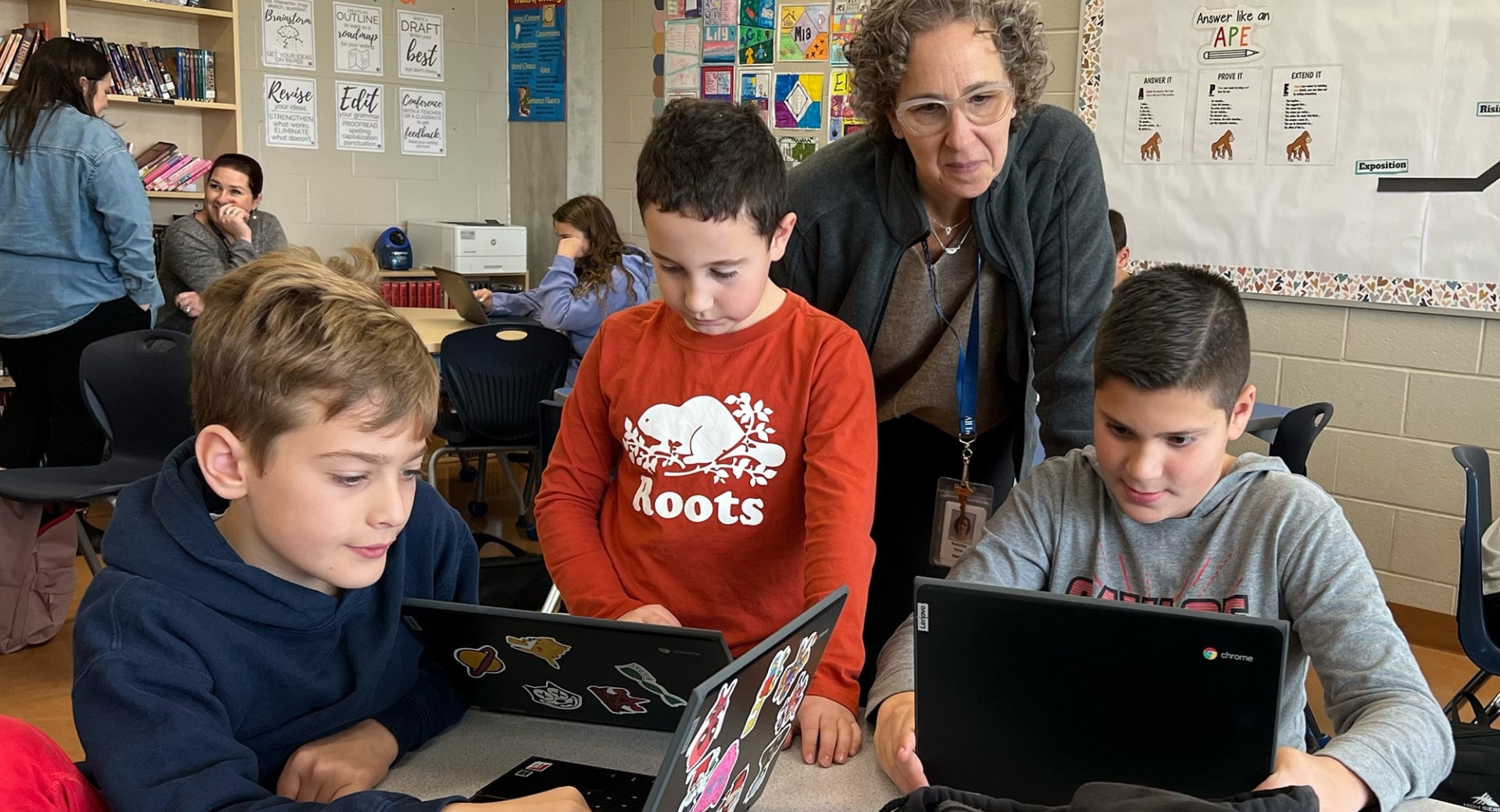
Everyday I wear my blue Bialik lanyard that bears the phrase “All in for All Kids.” It is a reminder of how Bialik faculty is committed to building our skills to give the best education possible to our students. This year, we are focusing on supporting children with their executive functioning skills and, in particular, those with ADHD.
As educators, we are seeing children more and more who need support in the areas of organization, time management, focus and self-regulation. These executive functioning skills are defined as “the mental processes that enable us to plan, focus attention, remember instructions, and juggle multiple tasks successfully.” (Center on the Developing Child at Harvard University). Bialik is working together with experts in the field, such as Dr. Yoni Schwab and Rebecca Ritter, from the Shefa Centre in New York City, to develop skills and methodology in supporting our students. The Shefa Center is well known for its expertise in providing professional development and training to Jewish day school educators and families to support students with learning challenges.
At our professional development sessions this year, our staff had the opportunity to deepen their understanding of ADHD and refine their teaching strategies. Through workshops, training sessions, and collaborative learning experiences, our faculty are gaining valuable insights into how to create an inclusive classroom environment that meets the diverse needs of all students. In our PD sessions, we reflected on students in our classrooms who struggle to regulate their emotions or sustain their attention. We were also reminded that students with ADHD have so many incredible qualities as they are often creative out-of-the box thinkers who ask thoughtful questions and offer innovative ideas.
ADHD often involves challenges in maintaining attention on specific tasks, especially those that may seem less interesting or engaging. This difficulty in focusing can lead to frustration for the student who struggles to complete assignments or pay attention during class. Children with ADHD may act impulsively, making decisions or blurting out comments without thinking through the consequences. This impulsivity can sometimes result in social challenges or disciplinary issues at school. For some children with ADHD, they constantly need to move about. Sitting still for extended periods, such as during class activities, can be physically uncomfortable and mentally challenging.
Our teachers are not just learning about ADHD and executive functioning challenges; they are actively honing their skills to provide targeted and effective support and explicitly teach these essential skills. Supportive teachers play a crucial role in helping children with ADHD thrive in the classroom and the support and understanding from peers and parents as well significantly influences how a child with ADHD experiences school. An environment that recognizes and accommodates their unique needs can make a tremendous difference in their confidence and performance.Here are some strategies that our teachers are using in the classrooms that can also be used at home:
Understand ADHD
Actively educate yourselves about ADHD and its various manifestations, recognizing that it is a neurodevelopmental disorder that affects a child's ability to regulate attention, impulses, and activity levels.
Create a Structured Environment
Our teachers are establishing a structured and predictable classroom routine. Clear expectations, consistent schedules and well-defined transitions can help children feel more secure and focused.
Use Visual Aids
Visual aids, such as schedules, charts, and diagrams can provide a helpful framework for children with ADHD. Visual cues can assist in understanding and remembering instructions, assignments, and daily routines.
Provide Clear Instructions
We are breaking down instructions into smaller, more manageable steps. This can also be done at home as it is important to clearly articulate expectations and, if possible, provide both written and verbal instructions.
Offer Regular Breaks
We recognize the need for movement and breaks. Allowing short movement breaks during class helps students release excess energy and maintain focus.
Differentiated Instruction
Our teachers are working to accommodate different learning styles by providing a variety of learning materials and allowing for flexibility in how students can demonstrate their understanding of the material.
Encourage Organization
Reinforce what our teachers are doing to focus on organizational skills, utilizing tools like checklists, colour coding, and calendars to assist in keeping track of assignments and deadlines. Senior Division teachers are explicitly teaching note-taking skills.
Provide Positive Reinforcement
Acknowledge and reward positive behavior. Reinforce achievements, no matter how small, to boost the child's self-esteem and motivation.
One of the things I truly love about Bialik is the many opportunities for learning and growth. We were excited to invite parents into our learning community when Dr. Schwab came to speak to staff a second time as we know that it takes a partnership to truly make a difference in the lives of our students. As we continue on this journey, our commitment to the success of every child remains unwavering.The journey toward empowering all children, especially those with ADHD and executive functioning challenges, is a collective one. It requires the combined efforts of educators, experts and parents. By working together, we create an environment where every child is understood, supported and given the tools to succeed. Together, we share one goal — providing all children with the skills they need to be successful in the future. Together, we are All in for All Kids!
